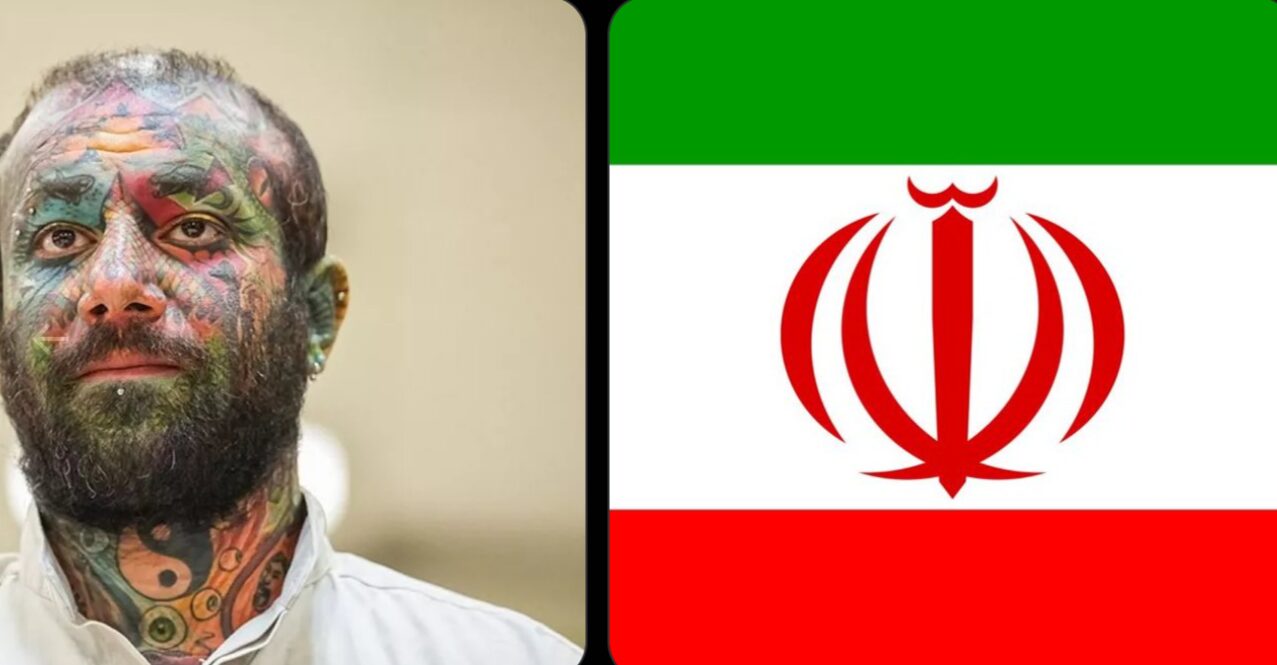Iran sentences Iranian pop star Amir Hossein to death for blasphemy after being found guilty of insulting Prophet Muhammad
In a shocking and tragic turn of events, Iranian pop star Amir Hossein has been sentenced to death by the Iranian government for blasphemy. Hossein, a popular figure in the Iranian music scene, was convicted of insulting Prophet Muhammad in his social media posts and public statements, which allegedly violated the country’s strict laws governing religious expression and respect for Islam.
This move has sparked outrage both within Iran and across the international community, leading to widespread condemnation from human rights organizations, activists, and fans alike. The sentence has raised concerns about the Iranian government’s increasing crackdown on free speech, the right to expression, and the limits of artistic freedom in a country where criticism of the government or religion can carry severe consequences.
Hossein’s trial, which took place behind closed doors, has been criticized for its lack of transparency and fair legal procedures. While some reports suggest that the singer was not given the opportunity to adequately defend himself, others claim that the charges were politically motivated. Regardless of the specifics, his conviction marks another high-profile case in the ongoing trend of Iran’s use of harsh legal measures to suppress any form of dissent, particularly when it comes to issues of religion.
The Blasphemy Charge and Its Implications in Iran
Blasphemy laws in Iran are notoriously strict, with the government enforcing severe penalties for those accused of insulting religious figures or symbols, especially Prophet Muhammad. These laws, based on the interpretation of Islamic Sharia law, hold significant weight in Iranian society, where religion is deeply intertwined with both politics and culture. Under Iran’s Penal Code, blasphemy can be punishable by death, and the country has seen numerous high-profile cases where individuals have been executed or sentenced to long prison terms for offenses deemed blasphemous by authorities.
Amir Hossein’s case is one of the latest examples of how these laws are being used to silence dissent and control free speech. The pop star, known for his social media presence and musical contributions, reportedly made statements and shared content online that some considered offensive to Islam and Prophet Muhammad. While the details of his alleged comments remain unclear, the government’s decision to charge him with blasphemy highlights the zero-tolerance approach Iran takes toward any form of perceived disrespect to religion.
Critics argue that the sentence reflects the Iranian government’s broader pattern of using religious laws to suppress free expression and control the cultural and social narratives within the country. With the state exerting such stringent control over artistic and individual freedoms, it becomes increasingly difficult for citizens, especially public figures like Hossein, to navigate the thin line between personal expression and government-imposed limits on speech.
International Outrage and Calls for Amnesty
Amir Hossein’s death sentence has sparked an international outcry, with human rights organizations such as Amnesty International and Human Rights Watch condemning the Iranian government for its heavy-handed treatment of the pop star. These organizations have called for the immediate reversal of the death sentence, urging the Iranian authorities to respect the basic principles of free expression and the right to a fair trial.
Many international governments, including the United States and members of the European Union, have also weighed in, criticizing the Iranian regime for its actions and calling for Hossein’s release. The issue of free speech and the punishment of blasphemy has become a significant point of contention in Iran’s relations with Western nations, many of which consider the country’s approach to religious criticism to be a violation of fundamental human rights.
Iran’s response to this international condemnation has typically been one of defiance, with officials often arguing that the country’s legal and cultural traditions should be respected by outside forces. The Iranian government maintains that its blasphemy laws are a necessary part of protecting the nation’s religious values and ensuring societal harmony. However, the growing criticism from the global community suggests that Iran’s approach is increasingly being seen as incompatible with modern human rights standards.
The Impact on Iran’s Pop Culture and Artistic Expression
The conviction and sentencing of Amir Hossein highlight the ongoing struggle faced by artists, musicians, and public figures in Iran who wish to express themselves freely. Iran has a long history of censoring music, art, literature, and film, with government authorities regularly blocking content deemed inappropriate or harmful to Islamic values. This has led to a thriving underground music scene in Iran, with many artists continuing to create and share their work despite the risks involved.
Pop music, in particular, has been a target of government censorship in Iran, with many musicians facing pressure to self-censor or modify their content to align with government-approved themes. The sentencing of Hossein sends a chilling message to artists and performers in the country, suggesting that even the slightest perceived deviation from religious norms can lead to severe consequences. As a result, many musicians may feel compelled to stay silent or limit their creative output, fearful of facing similar charges of blasphemy or other forms of dissent.
For Hossein, whose music has resonated with many young Iranians, the death sentence has become a symbol of the government’s increasing crackdown on cultural expression. His case is emblematic of the broader struggles faced by artists who work within a highly restrictive environment, where any form of creative freedom is vulnerable to censorship and punishment.
The Broader Political and Social Context in Iran
Amir Hossein’s sentencing must also be viewed within the broader political and social context in Iran. The country has been undergoing significant social and political tensions, with widespread protests in recent years against government policies and restrictions on personal freedoms. These protests, often fueled by discontent over the regime’s oppressive policies, have brought issues of free speech, human rights, and social justice to the forefront of political discourse in the country.
Iran’s leadership, facing mounting pressure both domestically and internationally, has responded with increasingly authoritarian measures to suppress dissent and maintain control over the population. The use of blasphemy charges to silence critics, such as in the case of Amir Hossein, is one example of how the government seeks to maintain its grip on power and prevent any challenge to its authority. This creates an atmosphere of fear and repression, where individuals are hesitant to speak out or express their views, particularly on controversial or sensitive topics.
The Road Ahead: What Happens Next?
As Amir Hossein’s case continues to develop, many are left wondering what the future holds for both the singer and the broader fight for freedom of expression in Iran. His death sentence, if carried out, would represent a tragic and significant blow to the already limited space for artistic and personal freedoms in the country. On the other hand, the international outcry and pressure from human rights organizations may push the Iranian government to reconsider its decision, as it has done in previous high-profile cases.
Ultimately, Hossein’s case is just one example of the ongoing struggle for individual rights and artistic freedom in Iran. Whether his sentence will be overturned or upheld remains to be seen, but one thing is clear: the debate over the limits of free expression and the role of government in regulating culture and religion in Iran is far from over.

















Post Comment